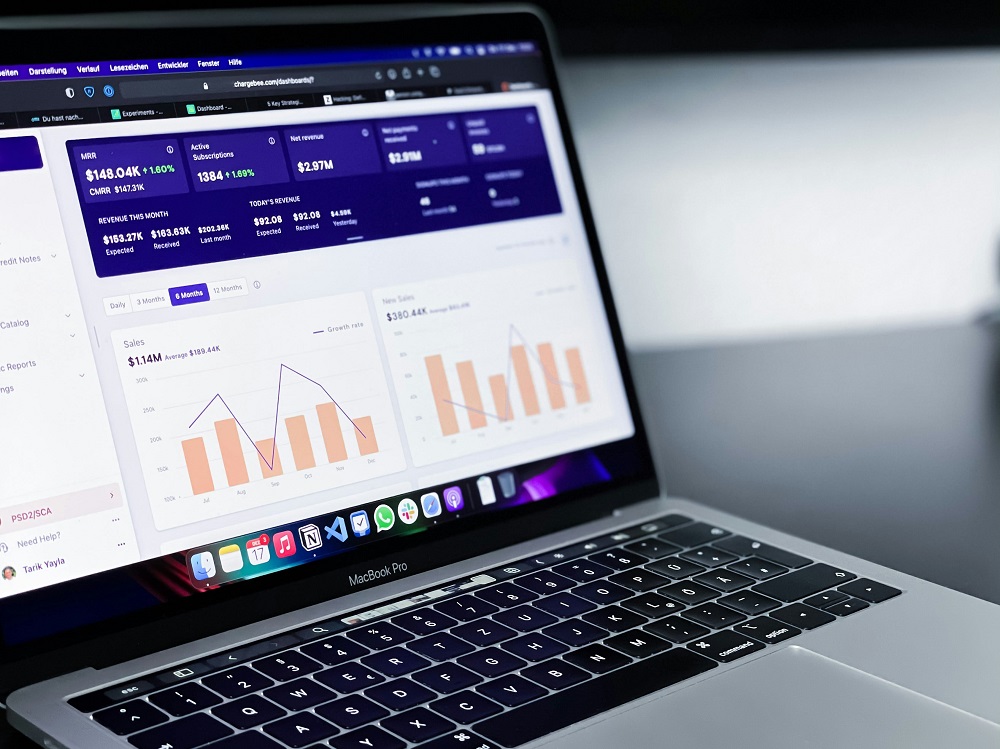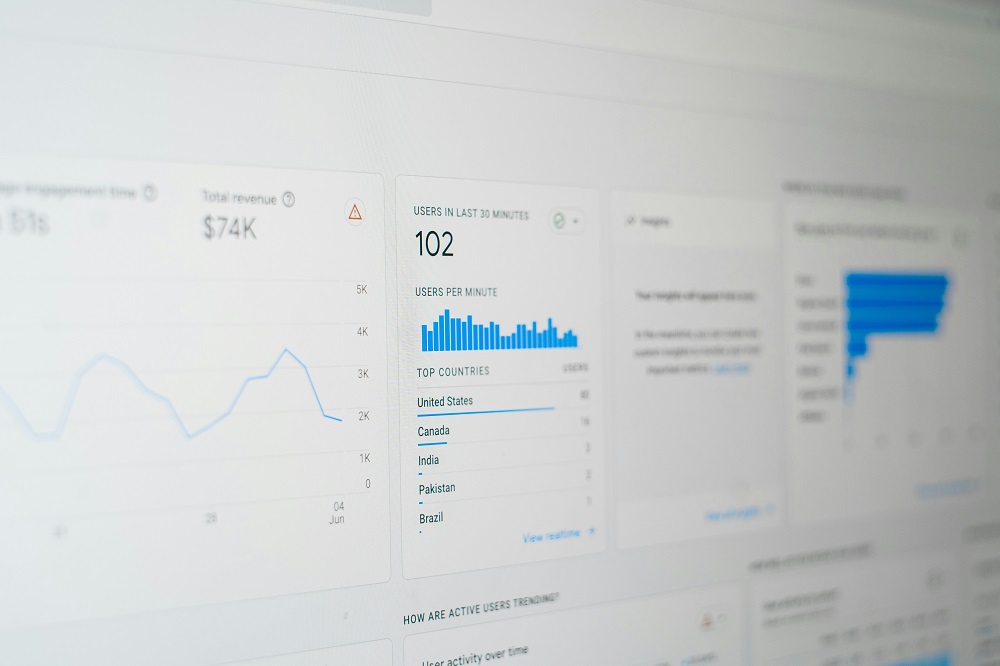In today's age of digital marketing, data analytics has become a critical part of every successful marketing strategy. And with the growing proliferation of digital platforms, marketers are leveraging data analytics to make data-driven decisions as well as gain critical insights into consumer behavior, future market trends, and campaign performance.
Creating innovative digital marketing campaigns is not just about crafting eye-catching ads or videos but driving purpose-driven campaigns to achieve the ultimate marketing goals. For marketers today, digital marketing campaigns are based on properly sourced, holistic, and sound data analytics. These clear and actionable steps are aimed at successfully incorporating data analytics into the brand's digital marketing campaign.
The Role of Data Analytics in Digital Marketing
Digital analytics plays an integral role in shaping the marketing landscape as businesses are striving to make sense of their data. It equips businesses with tools, software, or digital platforms to collect and analyze data that percolates through every online marketing endeavor.
Today, data analytics is becoming increasingly important in today’s business world. Some of the reasons include:
- Enhanced customer insights
- Optimized marketing strategies
- Increased ROI
- Competitive advantage
Read more: How Data Analytics Consulting Firms Empower Businesses with Insights?
To utilize data analytics in digital marketing, organizations need to take the following into consideration:
- Setting clear objectives
- Collecting relevant information
- Analyze and interpret data
- Implement data-driven strategies
- Measure and optimize marketing campaigns and strategies.
It is vital for businesses today to stay updated with the latest marketing trends to understand customer behavior and deliver a cohesive and enhanced user experience. Combining their digital marketing with data analytics can equip them to achieve all of that and more.
Importance of Data Analytics in Marketing
Today's online ecosystem, including social media, is undergoing volatile changes and evolution over time. This has created an avenue that can effectively influence consumers' buying patterns, choices, and preferences. Organizations are investing their time and resources to maximize the full potential of digital marketing through a variety of channels, strategies, and approaches.
Most customers spend a substantial amount of time researching online before making a purchase. It is therefore important for brands and organizations to be proactive with the way they handle their digital marketing. And that's where structured online data plays an important role.
It equips brands to tell a story, provide proof, identify loopholes, and direct their marketing efforts in the right direction. Digital analytics in marketing further enables business leaders to generate actionable insights from data and discover insights into consumers’ or visitors’ footprints throughout their digital journey.
The best thing about data analytics is that it removes most of the guesswork and allows businesses and marketing teams to identify strategies that work for their brand. Having this wealth of information at your fingertips helps you make smarter decisions about reaching the target audience, fueling brand loyalty, and eliminating critical risks related to marketing.

How can Data Analytics Improve Marketing Strategy?
Data analytics has a lot to offer in digital marketing - from helping brands understand their audience to optimizing digital marketing campaigns and measuring ROI.
Analyzing data is often a stumbling block for companies. It is time-consuming and confusing. However, with AI-driven tools, brands can regularly enhance and solve this marketing problem. The tools can also be leveraged to help analyze the organizational data in a fraction of the time. Let's explore how brands can integrate data analytics for brands to help with their digital marketing activities:
-
Understanding Consumer Behavior
One of the most significant benefits of integrating data analytics tools is their ability to help brands understand consumer behavior. By analyzing customer data including purchase history, browsing behavior analytics, and social media interactions, digital marketers can gain critical insights into the factors that influence the customer's purchase decisions. This data can be used to tailor marketing campaigns to the specific requirements and interests of customers.
Read more: From Chaos to Clarity: The Importance of Streamlining Your Data Management Strategy
-
Optimizing Marketing Campaigns
Data analytics enables digital marketers to track and measure the performance of their marketing campaigns. By analyzing campaign data like click-through rates, conversion rates, and engagement rates, digital marketers can identify how their marketing campaigns are performing. This data can be used to optimize digital marketing campaigns and allocate marketing budgets.
-
Personalization
A key trend in digital marketing, personalization plays a critical role in every marketing campaign. By analyzing customer data, digital marketers can create personalized experiences for their customers across different digital channels, including email, social media, and websites. Personalized experiences can further help increase customer engagement and loyalty, thus leading to higher conversion rates and revenue.
-
Competitive Analysis
Digital marketers can integrate data analytics to gain critical insights into industry trends and competitor activities. By analyzing competitor data, including website traffic, social media engagement, and advertising spending, marketers can recognize new opportunities to distinguish their brands and gain a competitive advantage.
-
ROI Measurement
One of the most important benefits of data analytics is its ability to estimate the return on investment (ROI) of marketing campaigns. By tracking and analyzing their marketing campaign data, marketers can determine which campaigns hold the potential to generate the highest ROI and adjust their marketing strategies accordingly. This information can further be used to justify marketing spending to stakeholders.
How to Use Data Analytics in Marketing
Integrating data analytics in marketing is a complex process. However, it can be made easier with the right tools and technology. The right tools can make your life easier and more efficient. To utilize data analytics in digital marketing, it is time for organizations to think about the following components:
- Setting Clear Objectives: It is important to establish clear and specific marketing goals as well as key performance indicators that align with the overall objectives of the business.
- Collect Appropriate Information: Collect relevant data points from different sources, including customer databases, social media platforms, and website analytics.
- Analyze and Interpret Data: Integrating data analytics tools to gain critical insights from the collected data. Search for trends and patterns and correlate them to improve marketing strategies.
- Implement Data-Driven strategies: Utilize the insights acquired from Data Analytics to design targeted digital marketing campaigns and tailored customer experiences.
- Measure and Optimize: Consistently monitor and optimize the performance of marketing campaigns and strategies. Analyze data to find for advancement and improve strategies for better outcomes.
Read more: Data-Driven Decision-Making: The Key to Thriving in the Digital Age

Tools used in Marketing Data Analytics
Even though marketing analytics sounds complicated, it involves only three major steps: collecting, organizing, and visualizing data. The right tools can make a marketer's life easier and more efficient. Tools help:
- A better understanding of organizational data
- Automate tasks
- Segment and target audience
- Provide real-time and accurate insights
- Enhance collaboration
Data analytics models, backed by digital technology, assist marketers in measuring the value of every customer action and touch point across multiple channels. With advanced analytic tools, brands can evaluate the results of their marketing campaigns at every step of the customer journey. Owing to the future trends of digital strategy, the scenario belongs to those who know how to use these sophisticated tools to gain valuable marketing insights.
How to Use Marketing Data Analytics in Business
Marketing data analytics encircles analyzing and interpreting data from marketing campaigns to understand their effectiveness. It equips marketers to identify which marketing strategies are working and which aren’t. Data analytics offer concrete evidence of performance, making the brand's marketing more efficient and targeted. Analytics offer insights into successes and failures and guide better decision-making for future campaigns.
Marketing data analytics is equally crucial for driving smarter, data-driven decisions. It further offers insights into how their brand products are used, thus tailoring them more closely to customer needs. Analyzing customer trends and preferences further offers brands effective segmentation and personalization of marketing campaigns. It also improves customer support by identifying common customer concerns.
By understanding the impact of different messages and media, marketers can optimize their communications and gain a competitive advantage by monitoring market trends and strategies. Predictive analytics further assist with forecasting future market behaviors, leading to more efficient budget allocation and higher possibilities of capturing new customers.
Read more: How Data Analytics Consulting Firms Empower Businesses with Insights?
Summary - Data Analytics in Digital Marketing
Today, data analytics is essential for brands aspiring to thrive in this digital age. It is an equally critical component to drive successful digital marketing strategies. The amount of data generated by digital channels - ranging from website traffic to social media engagement - is continuing to grow, and businesses that fail to embrace data analytics are at risk of falling behind their competitors. With the right tools and strategies, this data can be harnessed to propel growth and success.
Data analytics tool assists digital marketers to understand their audience and their marketplace, in order to make more informed decisions about strategies to reach their target audiences. It equips marketers with the ability to gain valuable insights and make the right use of data.
Data is a hugely valuable resource, but it is only useful if properly analyzed. By implementing holistic digital tactics, marketers can mine insights from the data to craft compelling, successful digital marketing campaigns that can help ensure all their business goals.
A leading enterprise in Data Analytics, SG Analytics focuses on leveraging data management solutions, predictive analytics, and data science to help businesses across industries discover new insights and craft tailored growth strategies. Contact us today to make critical data-driven decisions, prompting accelerated business expansion and breakthrough performance.
About SG Analytics
SG Analytics (SGA) is an industry-leading global data solutions firm providing data-centric research and contextual analytics services to its clients, including Fortune 500 companies, across BFSI, Technology, Media & Entertainment, and Healthcare sectors. Established in 2007, SG Analytics is a Great Place to Work® (GPTW) certified company with a team of over 1200 employees and a presence across the U.S.A., the UK, Switzerland, Poland, and India.
Apart from being recognized by reputed firms such as Gartner, Everest Group, and ISG, SGA has been featured in the elite Deloitte Technology Fast 50 India 2023 and APAC 2024 High Growth Companies by the Financial Times & Statista.









